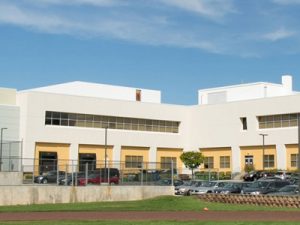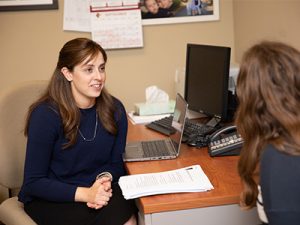Medical Sciences
Frisch’s Medical Sciences Track affords students the opportunity to gain exposure to the medical field while engaging in rigorous studies in the medical sciences, in addition to the formal Frisch Science curriculum. This four-year course of study is supplemented with experiential components including clinical opportunities in hospitals, hands-on labs and research projects, guest lectures and internships to familiarize students with many specialties within the medical profession. The track is composed of a sequence of science courses and experiences aimed at advancing students’ knowledge, skills and exposure to medicine.
Freshman: Introduction to Medical Sciences
This course is designed to supplement the 9th grade Biology course by delving deeper into the biological sciences, including cell and molecular biology, and anatomy and physiology. Students are introduced to the human body and its function, activities and processes, to provide them with the foundations for more advanced studies in subsequent courses within the Medical Sciences Track. Furthermore, they achieve clinical skills, gain an appreciation for the human element of treating patients and understand how science and medicine relate to population health. As freshmen, students engage in hands-on anatomy and histology labs, train for CPR and First Aid certification, shadow physicians and learn clinical medicine skills, such as taking vital signs and introductory exam techniques.
Sophomore: Medical Research and Application
With an understanding of cells and anatomy from 9th grade, sophomores advance their study of microbiology and immunology. Students learn experimental medicine and develop their skills in conducting research, as well as in biostatistical analysis, as they achieve an appreciation for how medicine is developed in the lab and applied to the medical field. In addition to practical experiences with animal lab and bench research, students gain further exposure on EMS ride alongs, and visit and observe various medical specialties, including the ER, Pathology and Radiology.
Junior: Advanced Medical Sciences and Application
With the research and analytical skills cultivated in 10th grade, juniors learn cutting edge applications in biotechnology, genetics and forensic medicine. Students are introduced to the basics of pharmacology and gain an appreciation for its interplay with biotechnology and its impact on medicine, including the development of vaccines and innovative cancer treatments. Additionally, clinical opportunities afford students with real-world experience in Endoscopy, General Surgery, Orthopedics, Anesthesia and Podiatry.
Senior: Interdisciplinary Topics in Medical Sciences
Seniors engage in an interdisciplinary study as they analyze cases from the perspectives of medicine and halacha. Bioethical questions are also discussed in an effort to encourage students to analyze challenging scenarios with moral considerations. Additional topics covered in senior year include Public Health and Health Administration, Neuroscience, Developmental Biology and Embryology to expose students to broad, as well as specialized areas within medicine. Students continue to engage in clinical experiences in Nephrology, ICU and Cardiology, including visits to the Cardiac Catheterization and Electrophysiology Lab, as well as observations of Cardiothoracic Surgery.





